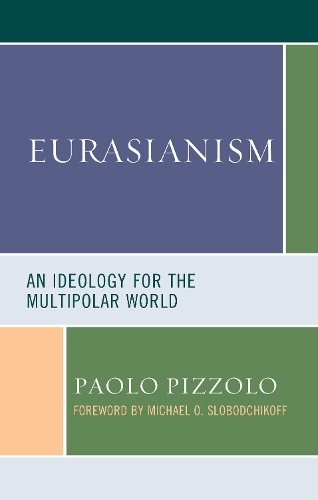
Eurasianism: An Ideology for the Multipolar World
(Hardback)
Publishing Details
Eurasianism: An Ideology for the Multipolar World
By (Author) Paolo Pizzolo
Foreword by Michael O. Slobodchikoff
Bloomsbury Publishing PLC
Lexington Books
28th January 2020
United States
Classifications
Professional and Scholarly
Non Fiction
Warfare and defence
327.5
Winner of CHOICE Outstanding Academic Title 2020 2020
Physical Properties
Hardback
302
Width 159mm, Height 234mm, Spine 28mm
626g
Description
Eurasianism: An Ideology for the Multipolar World investigates the ideology of Eurasianism, a political doctrine that founds its principles on geopolitics and conservatism. Specifically, the book examines neo-Eurasianist thought and its implications for the international system. After collocating Eurasianism in the spectrum of conservative theories, the research analyzes its historical evolution from the early 20th century to its contemporary manifestations. Pizzolo describes the liaison between Eurasianism and geopolitics, describing the nature of geopolitics and the main theories that highlight the relevance of the Eurasian landmass, including Mackinders Heartland theory, Spykmans Rimland theory, and Haushofers Kontinentalblock project. The book also focuses on the central elements of the neo-Eurasianist ideology, including the key features of the so-called Fourth Political Theory, arguing that Eurasianism could represent a theoretical contribution for the advent of the multipolar world.
Reviews
Since the disintegration of the Soviet Union, Russia's efforts to define itself as well as to reknit the Soviet space has generated political and scholarly attention in the West as well as in Russia. At the center of interest is "Eurasianism," which serves to define Russia as both European and Asian and as a scaffold for various projects to integrate former Soviet republics. Defining "Eurasianism" as an ideology, Pizzolo (LUISS Guido Carlo Univ., Italy) addresses the concept in the context of geopolitical theories, notably those of Halford Mackinder and Nicholas J. Spykman. This covers familiar ground, but his narrative on Aleksandr Dugin's "neo-Eurasianism" is a useful study of the more controversial aspects of "Eurasianism." Among other things, Pizzolo discusses Dugin's "Fourth Political Theory," a peculiar melding of liberalism, fascism, and Marxism that is intended to replace Western Atlanticism as a dominant world order. The international system, Dugin argues, is becoming multipolar. Pizzolo also addresses Dugin's much-criticized advocacy of Russian imperialism. Pizzolo's study is well documented with a bibliography rich in Russian sources. The book is strongly recommended for all university readers. Summing Up: Highly recommended. Lower-division undergraduates through faculty.
Author Bio
Paolo Pizzolo is research fellow in international relations at the University LUISS Guido Carlo of Rome.
